𓂀 ˎˊ˗ 22 𓋹 Worshipper of Bast. Who does what Bast loves ♡ they/them
Don't wanna be here? Send us removal request.
Photo

for this month’s character design challenge: the egyptian god, Khnum
5K notes
·
View notes
Photo






The folks at the Unitarian Church were cool enough to let me build a shrine to Bast next to their pond. I’m proud of it. I had a really nice little dedication and offered mint oil and lavender and some malachite, rose quartz, a pyrite sun, and a citrine cluster. The groundskeeper is going to plant some nice herbs and flowers around it (he and I already agreed on catnip, valerian, lavender, and marjoram), and I was thinking of finding a basket I can hang on the fence next to the shrine to put fruit and cut flowers in.
I bought and assembled the bricks its made of myself (along with the stepping stone I used for a kneeling spot), and then used a slab of sandstone the church had laying around for the top. Then I bought thingies to hang the pretty lanterns from (they sag over in the pictures but I reinforced them with stakes the next day).
I love the little cave bit especially to like set offerings inside (also in the hopes one of the stray cats that lives in the church’s prairie land will use it for a shelter). The little cat windchime in the second to last picture is so sweet, too. I’m glad to finally have this built, after maybe a year and a half of putting it off even though it was one of the first things She asked me to do. I can’t wait to see how people react to it and what it means for the whole spirit of the church and the pagans that go there.
234 notes
·
View notes
Text
My personal favorite epithet's of Lady Bastet from the Lexikon der Ägyptischer Götter und Götterbezeichnungen
nbt pt tA – The lady of heaven and earth
mHt aH m Awt ib – Who fills the palace with joy
nfrt Hr – She with perfect face
nDmt sTy – She with pleasant scent
irt Sat m XAkw ib – Who inflicts a massacre against the crooked-hearted
nbt hy – The Mistress of Jubilation
Haa nTrw rmT n mAA.s – The gods and people rejoice at the sight of her
Spst wsrt – The Magnificent and Mighty One
nbwt – The Golden One
wsrt ib – She with the powerful heart
28 notes
·
View notes
Text
Hii!! This is my first post. Here's my art of Medjed and Aten!


128 notes
·
View notes
Text
One thing I think people forget about when looking at heka, or Ancient Egyptian magic, is that it wasn't just prayers and praising the Gods to convince Them to help.
Sometimes it was more forceful, in the manner of bargaining or threatening, where the magician made their intent clear and the Gods either acted upon it or accepted the results.
Obviously I do not go around threatening my Gods (no need to straddle the line between earned respect and anger), but I do bargain with Them a good amount.
For example, I found a job within my niche that I desperately wanted. When I applied, I fit most of their requirements (besides missing a strongly preferred certification). I also knew that as it was a remote position, there would be plenty of other, more well qualified candidates. Of course I focused on preparing for the interviews appropriately, but figured extra divine help couldn't hurt.
I went to my shrine, and asked the Gods, "do these offerings and paintings and statuary please you? Are you content with just what I have already given freely, or do you wish for more?"
I told Them that as it stands, I cannot afford much else with this current job. However, if They helped get a new job, I could afford more for Them. More space, more offerings, more paintings and statuary. After all, I want to please Them with this shrine and fill it with all that Their hearts desire, and yet how can I supply it with no help?
And so They provided Their strength and assistance, with the promise that should things go well, I will compensate Them. I received the offer for the position, and am slowly working on providing Them with new offerings and statuary as thanks and payment.
68 notes
·
View notes
Text


I didn't ask if it made sense to keep going. I said I'm going to kick your twisted evil ass.
37K notes
·
View notes
Note
Hi, I wanted to ask about your designation as a Kemetic Priestess - are you a priestess of a specific deity or of the whole pantheon? Do you follow a specific calendar? Did you have training? (Sorry if that’s too many questions, I am just very curious!)
Hello there! It's absolutely not too many questions, I love to share about my practice!
I consider myself a Priestess due to the nature of my work with the Netjeru. I tend to their shrines, I offer daily praise and offerings, I post petitions on the behalf of others, and do specific work for Them (such as offering my divinations services in their honor, in addition to a number of more private services). I do not consider myself as a Priestess for the entire pantheon (that would be a whole lot of Gods!) Instead, I consider myself to be a Priestess for Tjenenet and Sutekh. They are the ones who initiated me on this path, and They are the ones I work with the most intimately.
I do follow a specific calendar for the most part! I'm still a part of the Kemetic Orthodoxy (though I am not a Priestess through them), and follow their calendar and festival schedule. While I don't celebrate every festival, I do try to celebrate as many as I can (as nothing is more fulfilling to me than worshiping the Netjeru).
Feel free to send in more asks if you're ever curious about anything!
16 notes
·
View notes
Text

Moodboard || Bastet - Protection of the Home
348 notes
·
View notes
Note
Hi friend :) I recently found your blog, and have genuine interest in what you have to say. So first off; thank you. My question to you is; how would you explain heka? I've had major trouble following it, but have 'got by' in my practice by relating it to a sort of spiritual tug of war where the middle point is desired... magic karma, if you will? Thanks in advance! 💖
The standard definition for heka is “authoritative utterance” and I still feel that my old ass post that waxed poetic about what heka is is still pretty accurate:
Heka is the skill to utilize words that convey your point in a concise and descriptive way that leaves little to ambiguity and miscommunication.It is the skill to say what you mean and mean what you say.It is the skill to say what is needed, when it is needed. It is the skill to speak firmly and respectfully, without being unnecessarily harsh or uselessly soft.It is the skill to utilize words in such a manner that evokes the desired emotions and reactions out of those whom you are addressing. It is speech that can call people to useful action, or quell people towards peace. It is the ability to use words effectively.
So heka is really learning how to communicate in a fashion that gets your needs met and doesn’t destroy those around you, generally speaking. It sounds simple, but its really not. The more I learn about how phrasing was done in antiquity, the more I learn about how psychology suggests we communicate with one another, the more I learn about how other languages approach communicating… you could literally spend your entire life and not get it down right.
I will add that saying the words is not enough, having the right body language and having the psychological hygiene in place to be able to say what needs to be said are all also important. For example, I’d argue that people who have rubbish boundaries will, by their very nature, have sloppy heka in at least some of their uses of it. The more I learn about it, the more I realize its facets and layers of complexity and yeahhhhhhhh.
tl;dr: don’t feel bad if you’re still figuring it out. It is as deep as you make it to be, imo. But the short answer is: heka is how you communicate, and ideally, you want to be very good at communicating effectively.
42 notes
·
View notes
Text

Bast; figs. I and II.
The Cat in the Mysteries of Religion and Magic
M. Oldfield Howey
Rutland, Vt.: Charles E. Tuttle Co., 1981.
574 notes
·
View notes
Photo
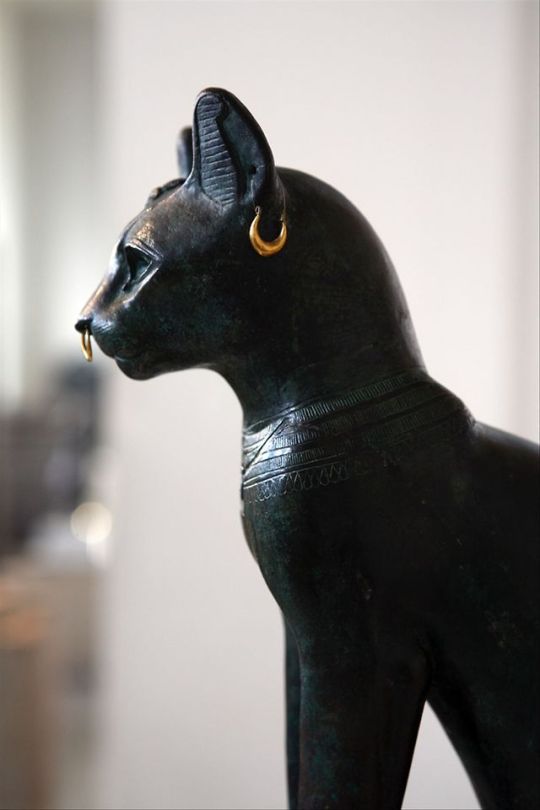
Bastet, Gayer-Anderson Cat. Late Period, ca. 664-332 BC.
13K notes
·
View notes
Text
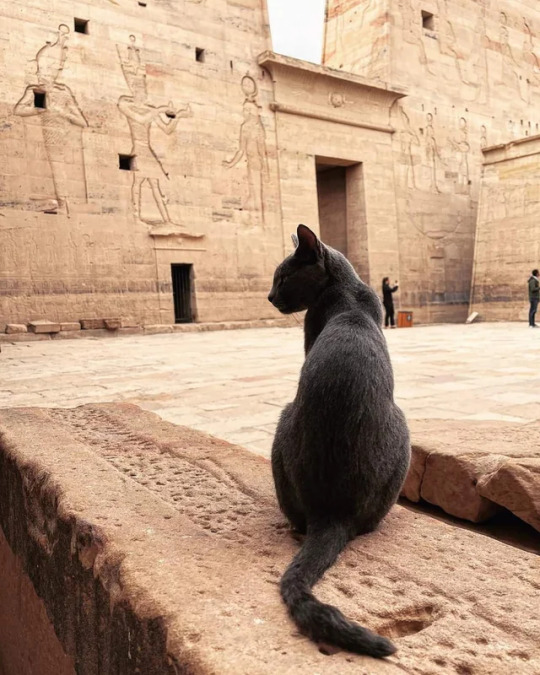
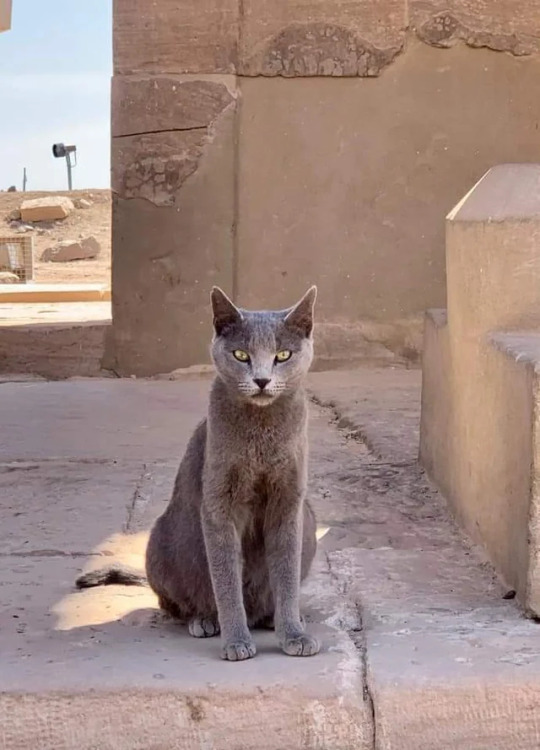
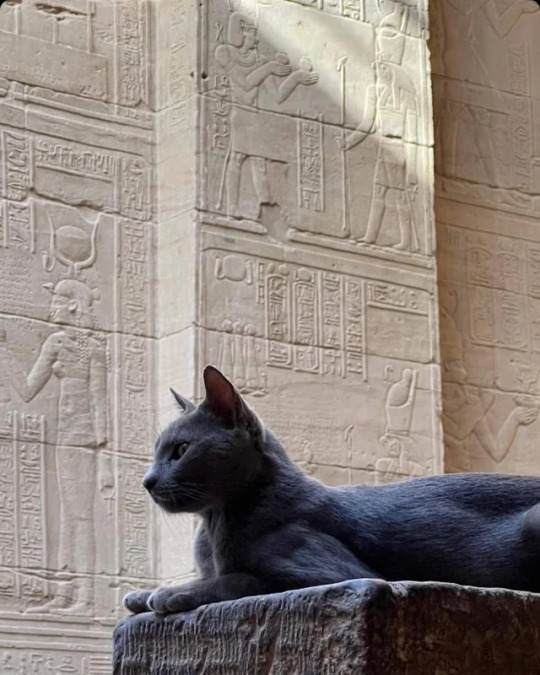
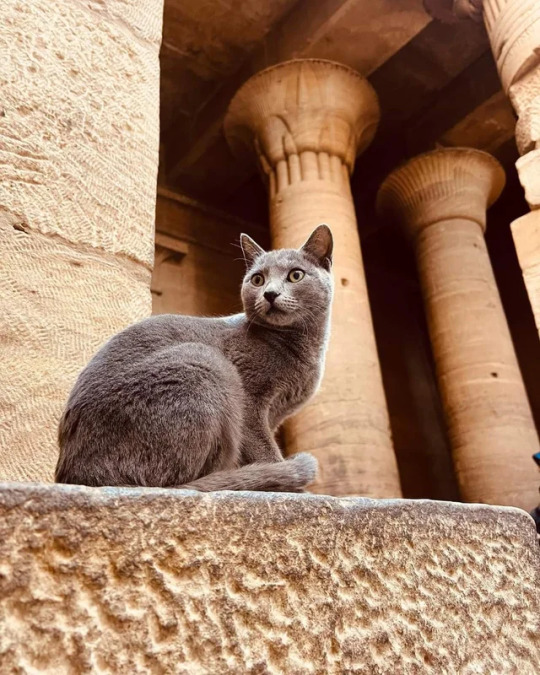
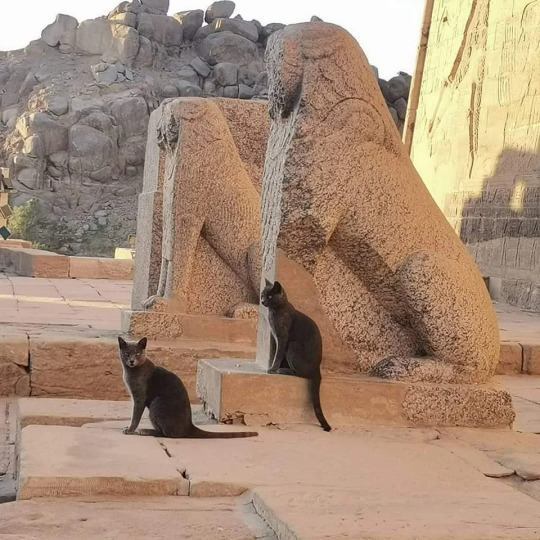

Cats at the Temple of Philae, Egypt
Source: CatsWithJobs Reddit
31K notes
·
View notes




